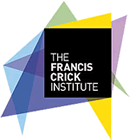About the Project
This 4-year PhD studentship is offered in Dr Adam Sateriale’s Group based at the Francis Crick Institute (the Crick).
Cryptosporidium, or ‘crypto’, is an intracellular parasite that causes a severe diarrhoeal disease known as cryptosporidiosis. Crypto infection accounts for over 200,000 deaths per year and even mild cases are linked to growth stunting and impaired cognitive development in children. Despite this significant impact on global health, very little is known about crypto infection and the host immune response (for a brief overview of the significance of crypto research, see [1]). My lab studies this interplay of virulence and immunity using a recently isolated species of the parasite that naturally infects mice, Cryptosporidium tyzzeri [2]. This mouse model of cryptosporidiosis closely resembles human infection in location, resolution, and the associated disease pathology. Further, the C. tyzzeri genome can be easily manipulated using CRISPR based editing [3]. Put simply, this new model of infection gives us full control over BOTH host and parasite genetics, which we are leveraging to answer fundamental questions about host-pathogen interactions:
How does the immune system recognize and respond to a crypto infection? What host genetic factors predispose one to a severe infection? How do they function?
How does the parasite evade detection and suppress host immunity? What parasite genetic factors are associated with highly virulent strains? How do they function?
To answer these questions, we use a combination of genetic screens and targeted crosses to identify genomic loci that correlate with resistance (host) and virulence (parasite). We then employ a variety of genetic and chemical tools to drill down the molecular mechanisms at play. As a new lab in the Francis Crick Institute, there are multiple projects available for new students.
I am interested in candidates with a strong interest in infectious disease and a desire to work on projects that bridge virulence and immunity. Projects in my lab generally involve super resolution microscopy, high-throughput sequencing, bioinformatics, CRISPR driven genetic manipulation, and basic molecular techniques. Expertise in these areas is beneficial, but certainly not a pre-requisite.
Talented and motivated students passionate about doing research are invited to apply for this PhD position. The successful applicant will join the Crick PhD Programme in September 2020 and will register for their PhD at one of the Crick partner universities (Imperial College London, King’s College London or UCL).
Applicants should hold or expect to gain a first/upper second-class honours degree or equivalent in a relevant subject and have appropriate research experience as part of, or outside of, a university degree course and/or a Masters degree in a relevant subject.
APPLICATIONS MUST BE MADE ONLINE VIA OUR WEBSITE (ACCESSIBLE VIA THE ‘APPLY NOW’ LINK ABOVE) BY 12:00 (NOON) 13 NOVEMBER 2019. APPLICATIONS WILL NOT BE ACCEPTED IN ANY OTHER FORMAT.
References
1. Striepen, B. (2013)
Time to tackle cryptosporidiosis.
Nature 503: 189-191. PubMed abstract
2. Sateriale, A., Šlapeta, J., Baptista, R., Engiles, J. B., Gullicksrud, J. A., Herbert, G. T., . . . Striepen, B. (2019)
A genetically tractable, natural mouse model of cryptosporidiosis offers insights into host protective immunity.
Cell Host & Microbe 26: 135-146.e135. PubMed abstract
3. Vinayak, S., Pawlowic, M. C., Sateriale, A., Brooks, C. F., Studstill, C. J., Bar-Peled, Y., . . . Striepen, B. (2015)
Genetic modification of the diarrhoeal pathogen Cryptosporidium parvum.
Nature 523: 477-480. PubMed abstract

 Continue with Facebook
Continue with Facebook

